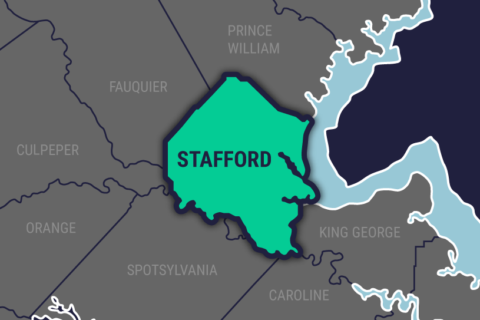WASHINGTON — Two years after rules regarding cemeteries were changed, some politically charged questions, and even accusations, are being tossed around in Stafford County, Virginia: What were county supervisors trying to protect residents from? And who is potentially being discriminated against?
At Tuesday’s Board of Supervisors meeting, a tightly contested vote saw leaders decide to stay the course with the current rules, even amid allegations of religious discrimination that have led to a federal investigation.
In 2016, the board unanimously approved new standards that required 900 feet between cemeteries and all sources of drinking water — public or private. The state standard requires that 900-foot buffer only for public sources of water, exempting private wells used by rural residents.
Adopting the stricter standard — something county leaders pointed out they’ve done in a variety of other situations — effectively stopped the All Muslim Association of America from going forward with a proposed burial ground on Garrisonville Road. The group had bought the land in 2015, before the changes were adopted.
County leaders put three proposals on the table Tuesday: one that would have changed nothing; one that would rely only on Virginia’s minimum standards; and one that would have allowed for distance exceptions only when private wells are concerned.
That last option didn’t sit well with Supervisor Wendy Maurer, whose district includes the site of the proposed burial ground. Human remains — as well as the chemicals associated with embalming and funerals — shouldn’t be so close to people’s drinking water sources, she said.
“I’m looking at these options as being discriminatory against the rural population,” said Maurer. “We need to look at all potential discrimination that could be applied” if the county went ahead and amended the ordinance.
“Residents with private wells are more vulnerable to contamination,” she argued. But if the county went ahead with the proposed changes, she said, “our ordinances would only protect public water to a higher standard but not provide equal protection to our more vulnerable population” who use private wells for drinking water.
Such residents, Maurer argued, tend to have lower incomes and fewer options available if something happens.
The final vote ended up being 3-2 to maintain the current rules, with one board member abstaining. Another board member who wasn’t at the meeting asked for the vote to be delayed, but that proposal was also voted down.








